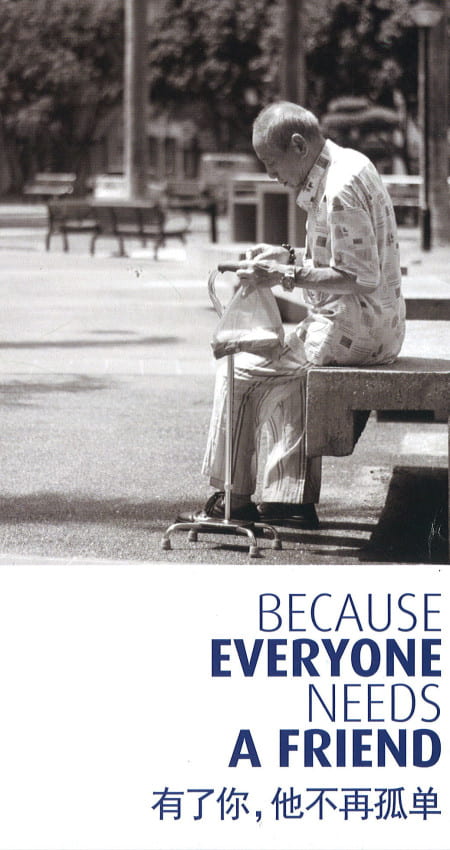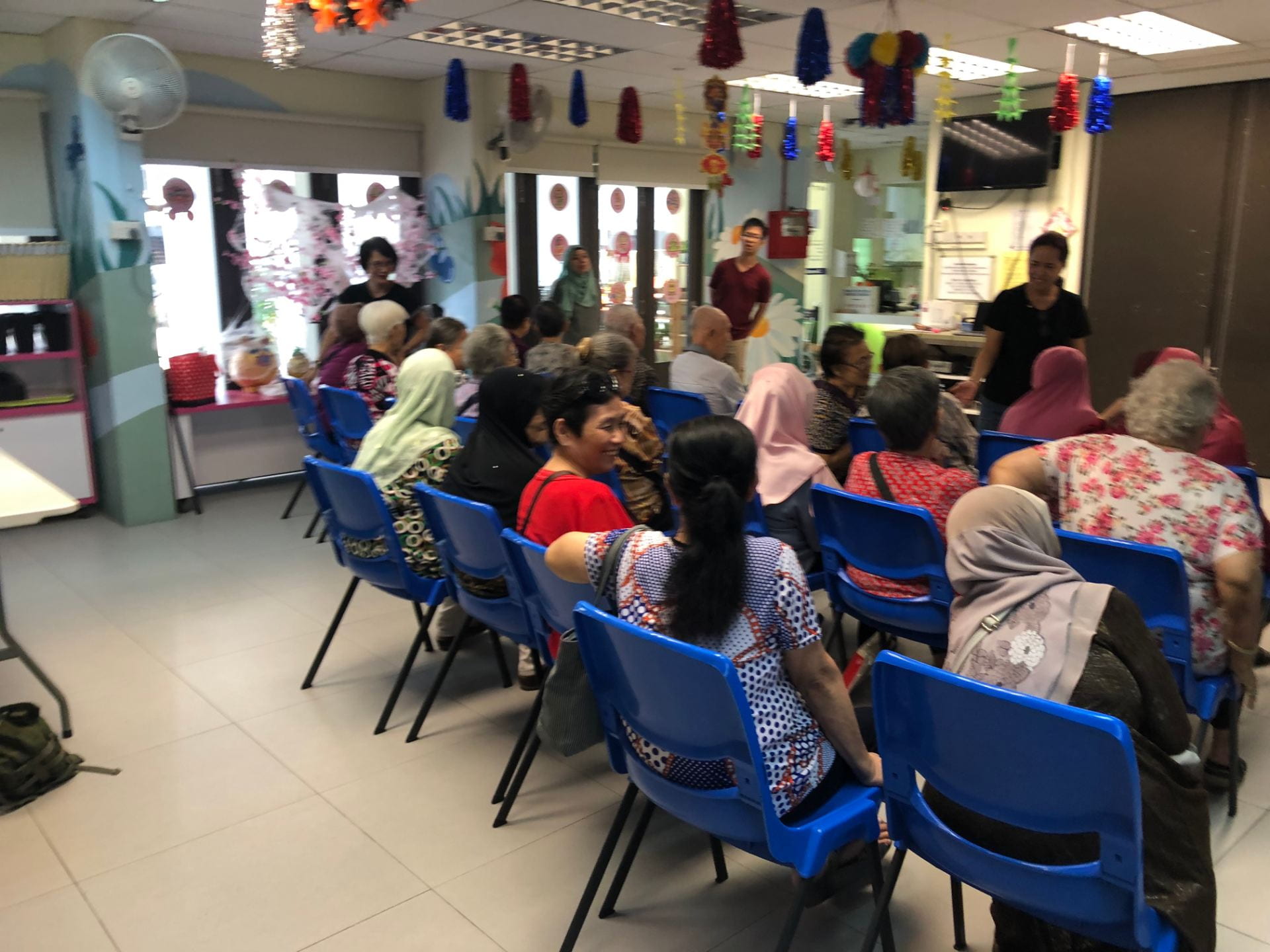First session
I have done this service last year and I thought it was a great experience so I decided to do it again this year, however it is a bigger commitment as last year we only had to do in Season 1-2 but now we have to do it for the whole year. I think this will also be a good experience as the elderly are from a new place this year, so we get to meet and play with new people.

Their vision “A nation where every senior is active, healthy and happy” and their mission is “To provide friendship and care for seniors to age in place with community participation, enabling them to enjoy meaningful and enriching lives”. I think we can work towards this mission and definitely provide friendships and make the most out of the time we are there, to built our relationship and make them happy.
LO5-Demonstrate the skills and recognise the benefits of working collaboratively.
Our service went to the centre for the first time and we learnt a lot about the place and about the people there. We listened to the leader speak about lion befrienders and how we can help. It was interesting to know what they like as it can help us gauge what to do to have the most fun and to bond with the people there. We also met some of the elderly and played ‘chinese whispers’ with them, and enjoyed it a lot.

As this service went on throughout the years, we had been planning the same things such as bingo or darts as we know it works and that they like it, however we think that we should try something different as we think that they might get bored with the things we always do. We think something like dancing or karaoke would be fun for all of us and it would be different to what we usually do. We have lessons in school to plan for many activities and back up plans, and along the way we will learn what works and what doesn’t work. 
There is a language barrier between some of us and the elderly however we can overcome it as the people who can speak english can help us translate and we think that we don’t need to speak the same language to bond over something. We think the activities planned will be fun and will work with helping the elderly enjoy their time.
I am chair along with David, and together we will try to set attainable goals that our service can do if we all try together. We just started, so it will take a while to get used to, however I am looking forward to managing and playing games and bonding with the elderly that is part of lion befrienders.
Video of activity:
IMG_5866
Mid session
After planning all of our activities it has made it easier for us in terms of organization and we also have more time at the center to create meaningful relationships for both us and the elderly.
LO1-Identify their own strengths and develop areas for growth.
What previous experience have I had with an activity like this?
I had done the same service in grade 10 and it is different for me personally since I have a different role this year. Last year I was just part of the service and it was different since we would do the activities in groups, collect the equipment to use and lead the service for that session, we would then rotate but this year the co-chair and I decided it would be easier if we all planned the activities as a group since we would have to go to the center this year, I think it was more effective this way as we were all included in this activity.
What am I good at? What are my strengths?
I think I am good at deciding what is important for our service and what isn’t. If something needs to be done I will try my best to assign a person, or plan how to handle the situation. We are all organized and tried our best since what we are doing have real consequences on real people.
Final session
Due to COVID-19 we were unable to go to the center and see the elderly face to face however we were able to maintain contact through the organization by emailing them.
LO7-Recognise and consider the ethics implications of choices and actions
Was I ever in conflict with another person?
Obviously problems arise when working with others since we might not have the same thinking in this situation. There was a case when I wanted a group of people to write an email to the organization to maintain the contact, when I asked for it after one whole session they were still not done with it and had even written something that was not relevant in that situation. I tried to handle it by encouraging them to write it as it would be beneficial to both us and the organization. In the end they had written an email for me and I was able to then send it to the organization, however it should not have taken that long to write an email, but I think I handled it the best I could.
How did my moral principles affect the decisions I made?
I believe that the elderly in this organization deserve to have relationships with us and our school since they are usually left alone in Singapore with no one to care or be with them. This affected my behaviour as I tried to get more people to participate in the service, in order to really help the elderly.


